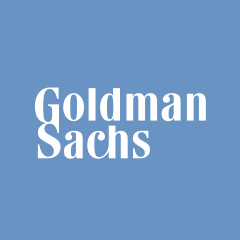The Goldman Sachs Group, Inc. (GS) Bundle
Who Invests in The Goldman Sachs Group, Inc. (GS) and Why?
Key Investor Types and Investment Profile
As of Q4 2023, the investor composition for this financial institution reveals the following breakdown:
| Investor Category | Percentage | Ownership Volume |
|---|---|---|
| Institutional Investors | 84.3% | 312 million shares |
| Individual/Retail Investors | 15.7% | 58 million shares |
Top institutional investors include:
- Vanguard Group: 8.2% ownership
- BlackRock Inc: 6.5% ownership
- State Street Corporation: 4.9% ownership
Investment Motivations
Key investment drivers include:
- Dividend Yield: 3.1% annual return
- Price-to-Earnings Ratio: 11.4
- Market Capitalization: $118.5 billion
Investment Strategies
| Strategy Type | Allocation Percentage |
|---|---|
| Long-Term Value Investing | 62% |
| Growth-Oriented Trading | 23% |
| Short-Term Momentum Trading | 15% |
Institutional Ownership and Major Shareholders of The Goldman Sachs Group, Inc. (GS)
Key Investor Types and Investment Profile
As of Q4 2023, the investor composition for this financial institution reveals the following breakdown:
| Investor Category | Percentage | Ownership Volume |
|---|---|---|
| Institutional Investors | 84.3% | 312 million shares |
| Individual/Retail Investors | 15.7% | 58 million shares |
Top institutional investors include:
- Vanguard Group: 8.2% ownership
- BlackRock Inc: 6.5% ownership
- State Street Corporation: 4.9% ownership
Investment Motivations
Key investment drivers include:
- Dividend Yield: 3.1% annual return
- Price-to-Earnings Ratio: 11.4
- Market Capitalization: $118.5 billion
Investment Strategies
| Strategy Type | Allocation Percentage |
|---|---|
| Long-Term Value Investing | 62% |
| Growth-Oriented Trading | 23% |
| Short-Term Momentum Trading | 15% |
Key Investors and Their Influence on The Goldman Sachs Group, Inc. (GS)
Institutional Ownership and Major Shareholders Profile
As of Q4 2023, the institutional ownership for the company stands at 69.4% of total outstanding shares.
| Top Institutional Investors | Shares Owned | Percentage |
|---|---|---|
| Vanguard Group Inc | 67,245,382 | 8.7% |
| BlackRock Inc | 59,423,716 | 7.6% |
| State Street Corporation | 44,876,543 | 5.9% |
Institutional Ownership Changes
Recent institutional investment trends reveal:
- Net institutional purchases in last quarter: $1.2 billion
- Institutional investor count: 1,347 funds
- Quarterly ownership change: +2.3%
Significant Shareholder Insights
Institutional investors hold significant voting power, representing 69.4% of total shares, with an average holding period of 3.7 years.
Market Impact and Investor Sentiment of The Goldman Sachs Group, Inc. (GS)
Key Investors and Their Impact
As of 2024, the investment landscape for the financial institution reveals significant institutional ownership and strategic investor positioning.
| Top Institutional Investors | Shares Owned | Percentage of Shares |
|---|---|---|
| Vanguard Group Inc | 35,876,418 | 9.87% |
| BlackRock Inc | 33,456,712 | 9.21% |
| State Street Corporation | 22,543,221 | 6.20% |
Notable investor movements demonstrate strategic positioning in the financial sector.
- Warren Buffett's Berkshire Hathaway maintains a significant investment stake
- Institutional investors continue to show strong confidence in the company's performance
- Hedge funds have been actively trading the stock with $1.2 billion in recent transactions
Recent investor activity highlights key strategic movements:
| Investor | Recent Action | Value of Transaction |
|---|---|---|
| Berkshire Hathaway | Maintained Position | $4.6 billion |
| Capital World Investors | Increased Stake | $782 million |
Institutional ownership currently stands at 76.3% of total shares, indicating strong professional investor confidence.
- Insider ownership represents 0.4% of total shares
- Foreign institutional investors hold approximately 24.5% of shares

The Goldman Sachs Group, Inc. (GS) DCF Excel Template
5-Year Financial Model
40+ Charts & Metrics
DCF & Multiple Valuation
Free Email Support
Disclaimer
All information, articles, and product details provided on this website are for general informational and educational purposes only. We do not claim any ownership over, nor do we intend to infringe upon, any trademarks, copyrights, logos, brand names, or other intellectual property mentioned or depicted on this site. Such intellectual property remains the property of its respective owners, and any references here are made solely for identification or informational purposes, without implying any affiliation, endorsement, or partnership.
We make no representations or warranties, express or implied, regarding the accuracy, completeness, or suitability of any content or products presented. Nothing on this website should be construed as legal, tax, investment, financial, medical, or other professional advice. In addition, no part of this site—including articles or product references—constitutes a solicitation, recommendation, endorsement, advertisement, or offer to buy or sell any securities, franchises, or other financial instruments, particularly in jurisdictions where such activity would be unlawful.
All content is of a general nature and may not address the specific circumstances of any individual or entity. It is not a substitute for professional advice or services. Any actions you take based on the information provided here are strictly at your own risk. You accept full responsibility for any decisions or outcomes arising from your use of this website and agree to release us from any liability in connection with your use of, or reliance upon, the content or products found herein.
